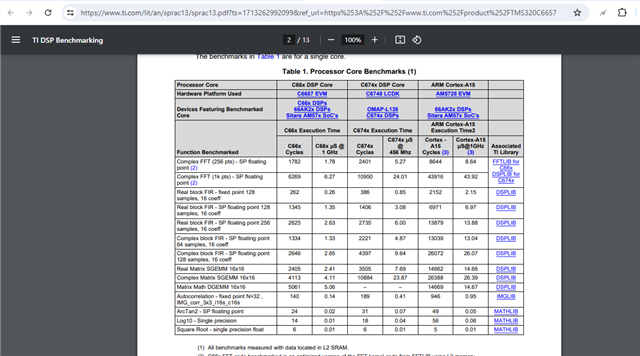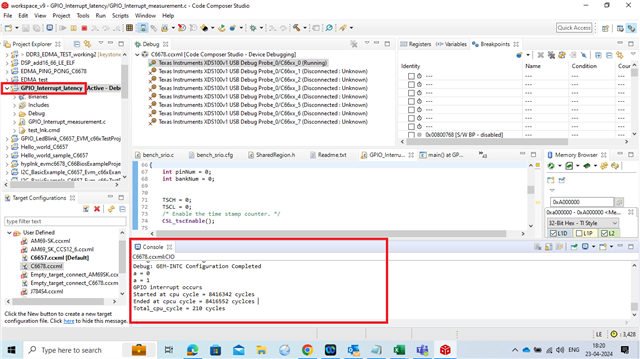Hi, I am using C665x DSP to develop a data communication software.
The development environment is as follows:
1. Device: TMS320C6657, run clock = 800MHz;
2.CCS V5.5;
3.No real-time OS is used;
4. Only One GPIO Interrupt is used, and the interrupt signal is generated externally, period = 6.4uS;
5. Software is running in internal ram;
I measured the time from GPIO Interrupt Signal to enter Interrupt Service routine, it changes greatly,
and the maximum time is about 2.0uS(1600 cycles).
Is there a method to shorten this time?



